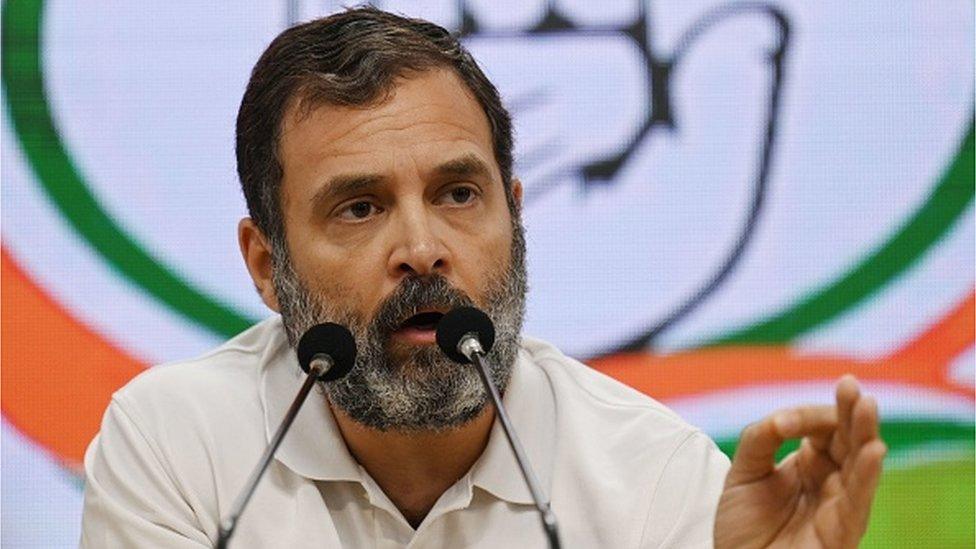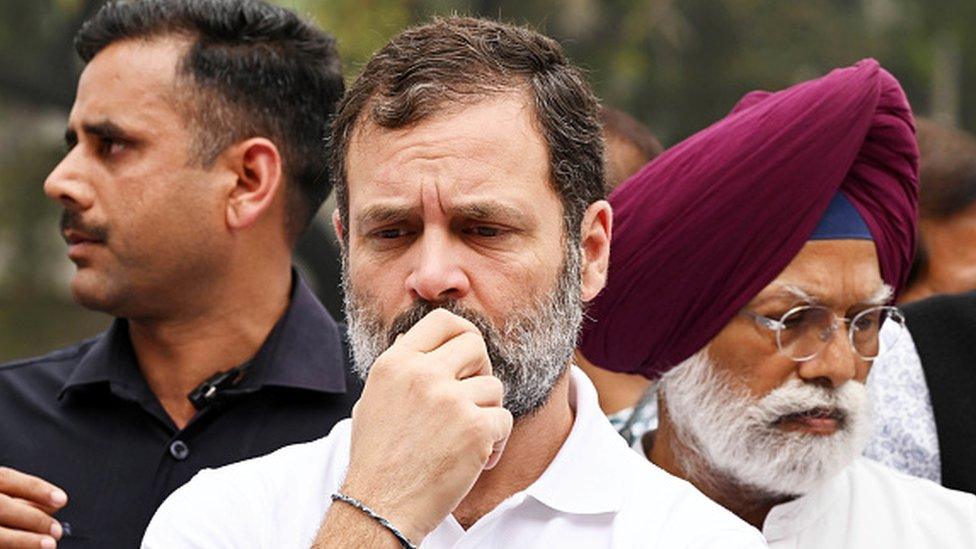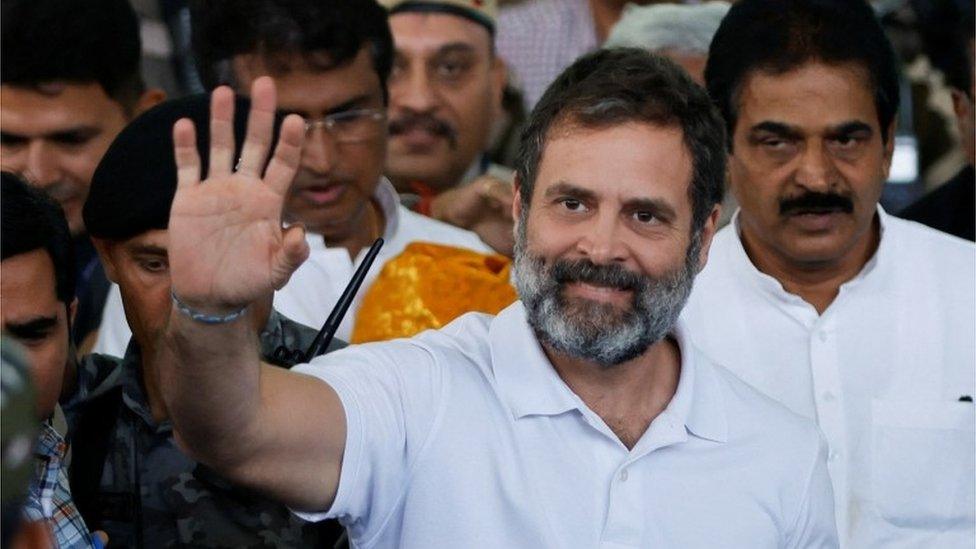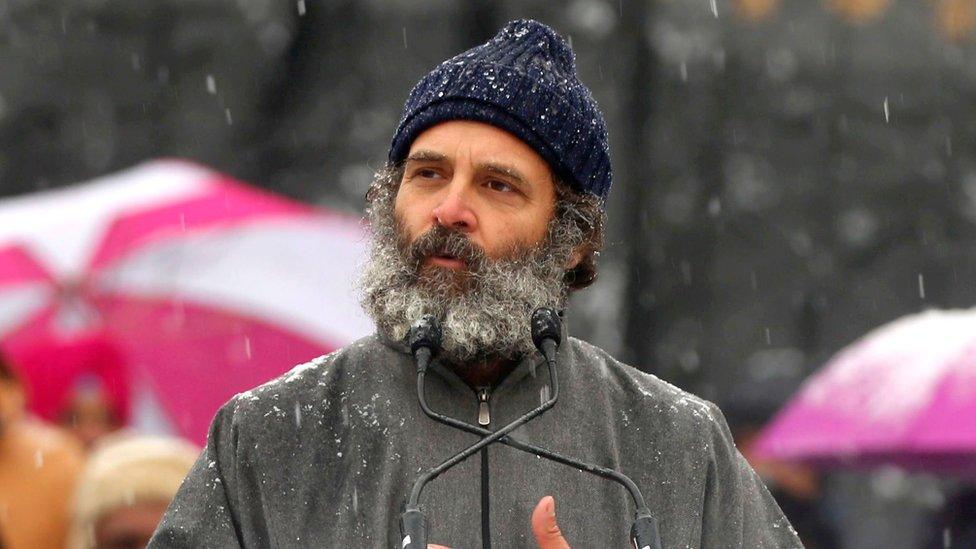Gandhi says disqualification 'politically motivated'
- Published

Rahul Gandhi speaks to the media in Delhi on Saturday, a day after being disqualified from parliament
The leader of Indian's opposition Congress party Rahul Gandhi has said his disqualification by parliament was politically motivated.
On Friday, India's parliament stripped Mr Gandhi of his MP status a day after he was sentenced to two years in prison in a defamation case.
He was convicted by the court for 2019 comments about PM Narendra Modi's surname at an election rally.
The governing BJP says his expulsion conformed with parliamentary rules.
A 2013 Supreme Court order says that a lawmaker convicted in a crime and sentenced to two or more years in jail stands disqualified from the parliament with immediate effect.
Speaking at a news briefing on Saturday, Mr Gandhi said: "It makes me no difference if I'm disqualified... Disqualify me for life.... I will keep going, I will not stop."
Although India's opposition parties don't always agree on political issues, many of them have supported Mr Gandhi over his disqualification. On Friday, 14 parties approached the Supreme Court, alleging that the federal government was misusing investigative agencies to target BJP's opponents.
Congress president Mallikarjun Kharge alleged that the action against Mr Gandhi was a consequence of his demand for a parliamentary investigation to probe allegations against the Adani Group.
The huge conglomerate was accused of decades of "brazen" stock manipulation and accounting fraud by US-based short-seller Hindenburg Research earlier this year. The Adani Group has denied allegations of financial fraud.
"My job as I see it is to defend the democratic nature of this country," Mr Gandhi said after his disqualification.
"That means defending the institutions of this country, that means defending the voice of the poor people of this country, that means telling the people of this country the truth about people like Mr Adani, who are basically exploiting the relationship they have with the prime minister," he said.
"I was disqualified because Prime Minister Narendra Modi is scared of my next speech on Adani... I can see it in his eyes."
Mr Gandhi's supporters say his disqualification is a sign that India's democratic system is weakening, and more protests against the government are planned in the coming days.
He will not be allowed to take part in national elections due next year, unless his sentence is suspended or he is acquitted in the case.
The ruling Bharatiya Janata Party (BJP), however, said the decision to disqualify Mr Gandhi was in accordance with parliamentary laws, and criticised his party for questioning the verdict.
Federal Labour Minister Bhupender Yadav said Mr Gandhi had insulted members of the caste grouping known as Other Backward Classes (OBC) under which the name "Modi" falls.
"Insulting any surname is not freedom of speech," he said.
But some experts have questioned the severity of Mr Gandhi's sentence.
Joyojeet Pal, an associate professor of information at the University of Michigan, said that it was "highly unusual" for a first-time offender like Mr Gandhi to be given the maximum possible punishment of two years' imprisonment.
"Both low-level politicians and parliamentarians in India are known to engage in extreme speech on social media and in their public meetings. A conviction of this scale, with the consequence of removing the primary challenger to Modi, is practically unheard of," Prof Pal added.
Related topics
- Published24 March 2023

- Published23 March 2023

- Published19 March 2023
